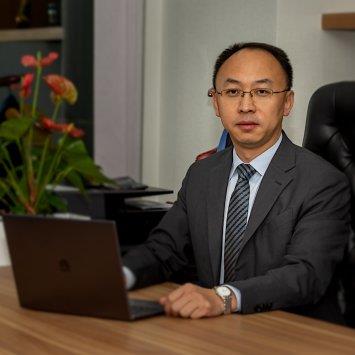
Qatar's connected future requires strengthening partnerships to build the local talent ecosystem
(MENAFN- The Peninsula) Today, the information and communications technology (ICT) sector forms the building blocks of more intelligent societies. This sector, and the people who work within it, are helping to drive Qatar's industries and businesses forward. This provides the momentum for socio-economic growth while contributing towards achieving Qatar National Vision 2030.
Nurturing local talent as an integral part of Qatar's overall ICT ecosystem is spreading advantages to all other sectors and industries in the country. A strong talent pool is therefore essential for Qatar to reap the full benefits of digitalization, to unlock more opportunities for people and business, and to accelerate national recovery following the COVID-19 pandemic. A talent-focused and 'innovation mindset is the only way to addresses the requirements of a more digital-centric and sustainable future.
The essential role of connectivity has never been more prominent than in the last year. Without fast connections provided by advanced telecom networks, video conferencing, cloud computing, and other technologies, the world would have ground to a halt during the lockdowns. Creating new value with synergy across these tech domains is key to the development roadmap of Qatar.
In particular, the field of education was greatly impacted, yet also took advantage of connectivity and advanced technology solutions. New challenges arose in providing students with the means to advance their education without the use of physical labs, shared equipment, and traditional curriculums. Unfortunately, the digital divide might have widened during this period, setting back gains achieved in recent years.
While digital infrastructure has evolved to combat COVID-19 more broadly, Qatar will need to simultaneously focus on equipping the country's youth with advanced technical skills to be the future leaders in achieving the targets of their country's ambitious National Vision.
That is easier said than done, of course. We have seen tremendous efforts made by the government and our partners towards growing talent in the ICT arena. Moving forward, continued work is needed as some clear priorities are identified.
For example, encouraging knowledge and experience sharing will create more open ecosystems. These provide more opportunities for technology to evolve in ways that are beneficial to society.
Promoting the value of public-private partnerships to nurture an innovation mentality and to foster ICT talent growth is also essential, particularly in terms of practical skills development.
Universities must also strive to adapt their curriculum to meet the requirements of ICT talent cultivation in the future, with stakeholders such as government authorities, telecom operators, and ICT vendors making their own contributions through collaborative initiatives, programs, and other activities.
Huawei is continuously committed to providing our capabilities in Qatar, so that people here can avail of the latest breakthroughs in vital areas like 5G, artificial intelligence, cloud, and more. Led by a new generation of talent, the rapid development of these technologies will have a significant impact on local economies, leading to business growth and social development. It is an ongoing journey as we collectively look to bring digital to every person, home, and organization.
The writer is CEO of Huawei Technologies Qatar

Legal Disclaimer:
MENAFN provides the
information “as is” without warranty of any kind. We do not accept
any responsibility or liability for the accuracy, content, images,
videos, licenses, completeness, legality, or reliability of the information
contained in this article. If you have any complaints or copyright
issues related to this article, kindly contact the provider above.


















Comments
No comment